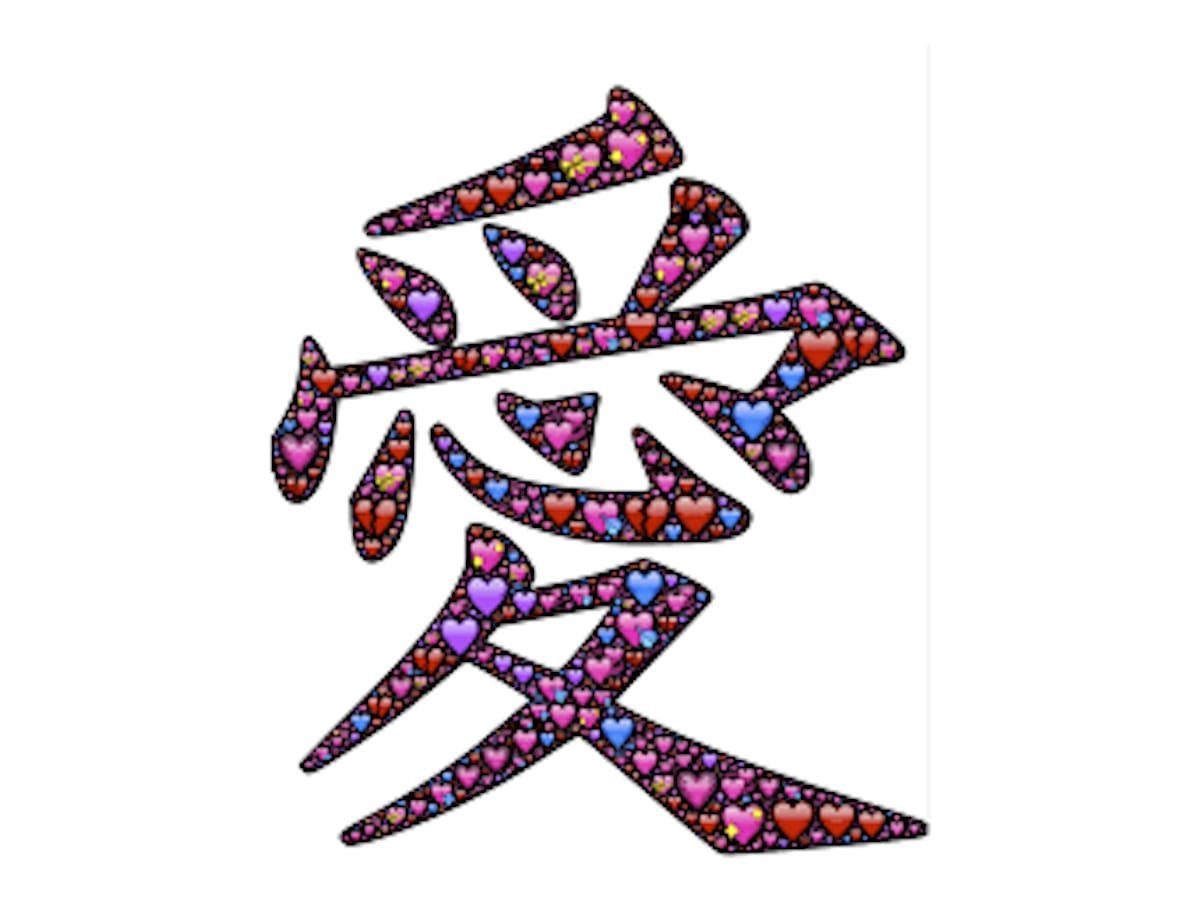
Source: Ai, the Japanese word for love. | "Japanese Love Character Typography" by GDJ, © Open Clipart, CC0 1.0
Kotodama: the belief in the magic power of words
- Tags:
- Japanese language / kotodama / Magic / words
Related Article
-

Japanese brand’s ‘Magic Club’ creates wearable witch fashion and accessories for spellbound ladies
-
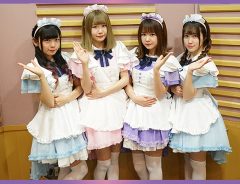
Japanese Voices: @17 no Gokitaku Shimasenka? #48: “Assebu Theater”
-
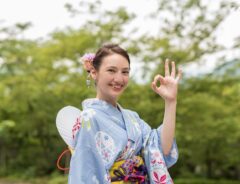
Useful in Japan: Four versatile Japanese expressions with a total of 28 meanings!
-
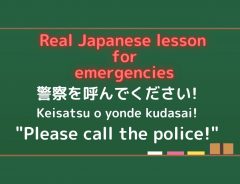
Japanese teacher’s real phrases to use in Japan: Emergencies [audio included]
-
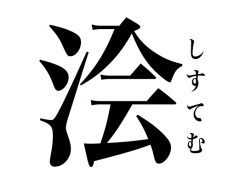
Even If You’ve Only Learned Katakana, You’ll Understand This Kanji
-
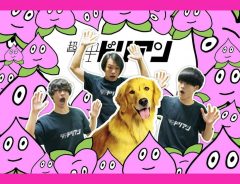
Fashion and manga fans! Learn Japanese with hilarious songs by a popular Japanese band


Kotodama (言霊) refers to the belief that words have mystical powers. It combines the word for 'speech' (言 koto) and the word for 'soul' (霊 tama).
Kotodama presupposes that sounds can magically affect objects and that the ritualistic chanting of words can affect both the individual and her environment. For example, if you call out someone's name, the sound will have an impact on them, whether they can hear you or not.
Kotodama has its roots in Shinto, Japan's animistic religion. In ancient times, spells and incantations to the Shinto gods were seen as having divine power. Shintoists believe that not only people but also animals and objects have souls, so it is not surprising that they believe that words have souls too.
Kotodama is not as foreign a concept as it might at first appear. Though outdated, the belief in magical words, be it 'hocus pocus,' 'abracadabra' or 'open sesame', was once widespread. In Hinduism, it is believed that different words produce different vibrations and that chanting them as mantras will create different effects, be it inner peace, the healing of injuries, or protection from bad luck. Hindu mantras usually start with the word 'Om', which is believed to be the sound of the universe.
A Shinto priest at a shrine | Chary, © PIXTA
In Japan, belief in kotodama is as old as the written word. In the Man'yōshū, the oldest surviving collection of Japanese waka poetry, which was compiled sometimes after AD 759, Japan is referred to as kotodama no sakiwau kuni (言霊の幸わう国), or "the land where the mysterious workings of language bring bliss."
Originally, only Shintoist spells and incantations were seen as having divine power, but in time, other words came to be regarded as divine too. One example to have survived to the present day is the short shout uttered when making an attacking move in karate or aikido. It is called kiai (気合) and is supposed to concentrate the attacker's resolve.
You can also see kotodama at work in the traditional Japanese wedding ceremony. Guests should avoid using the words “cut,” “break,” “split,” “go back,” “end,” or any words that suggest separation at the ceremony. Such is the power of an ill-chosen word, the end of the wedding is even referred to as the “opening."
The fear of certain words, usually because they sound the same as something considered unlucky, is intrinsic to kotodama. For example, the word shisan can refer to the number 43, but it can also mean 'stillborn', and that makes 43 an unlucky number.
By the same token, the number 17 is said as 'jūnana', which also means 'great wealth' and this makes it a lucky number. In Japanese, this kind of cosmic coincidence is called dōonigigo ( 同音異議語)or 'words that sound the same but have different meanings.'
Many Japanese words are used ritualistically, for example these words used when leaving or coming home. | Benjamin Mako Hill, CC BY-SA 4.0, via Wikimedia Commons
Like all religions, Shinto has sometimes been interpreted in political terms. Indeed, it is particularly susceptible to being manipulated by politicians because it places so much emphasis on politically loaded concepts like 'purity' and 'cleanliness'. When it comes to kotodama, this implies a belief that the Japanese language itself has divine power, and that it owes its strength to its 'purity.'
In the past, this suspicion of foreign influence led many Shintoists to avoid using words that originated in China and instead use only yamatokotoba (大和言葉、Japanese native vocabulary) in their rituals. This was no easy task, given that Sino-Japanese loanwords have been in use for well over 1500 years and have had a formative impact on the Japanese language. It is also ironic, because the belief in kotodama is even stronger in China than it is in Japan.
Suspicion of Sino-Japanese loanwords eased during the period of military government in Japan (1932-1945), if only because there was now a new bogeyman to exorcise from the Japanese language: English loanwords.
In the years leading up to World War II, nationalists did their best to purge their language of what they called tekiseigo (the language of the enemy) and to replace the offending words with Sino-Japanese words. For example, the word ragubî, (ラグビー), a loan word from the English 'rugby,' became tōkyū (闘球), a Sino-Japanese word meaning 'fight ball.'
These days, the struggle to 'purify' the Japanese language is just a memory, but you still hear the word kotodama being used today. Japanese pop-rock band Southern All Stars had a big hit in 1996 with “Ai no Kotodama ('the magical words of love' might be a good translation).
Even the scientific community is tempted by the appeal of kotodama from time to time. In 2004, Japanese businessman and author Masaru Emoto claimed that human consciousness could affect the molecular structure of water.
He conducted an experiment in which he uttered positive words to a bowl of water, which caused the water to produce beautiful crystal patterns when frozen. When he said mean things to the water, it formed ugly crystal patterns when frozen. Masaru Emoto was convinced that polluted water could be cleaned by the power of prayer (if only doing the laundry were so easy!)
Of course, it's easy to laugh at religion when it dresses itself up as science, but we shouldn't be too dismissive. The English language translation of Emoto's book, The Hidden Messages in Water, became a New York Times bestseller.